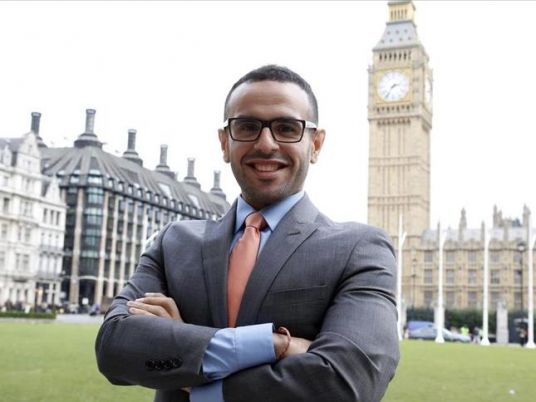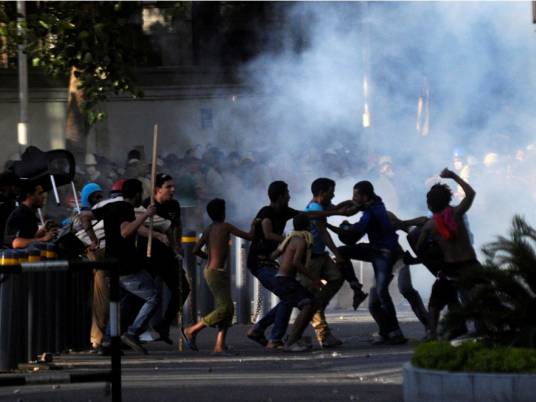
As a low voter turnout mars Egypt’s first phase of ongoing parliamentary polls, gruesome tales of torture carried out by Egyptian President Abdel Fattah al-Sisi’s regime continue to surface.
In a special interview with Anadolu Agency in London, Mohamed Sultan, a U.S. citizen of Egyptian origin, claims he was held in Egypt’s notorious Tora prison for almost two years; he has described in vivid detail the long months of torture and death threats he experienced under the Sisi regime.
"They threw in a dying person into my cell and made me sleep with the corpse," he said.
Sultan is a graduate of Ohio University and holds a bachelors’ degree in economics. He moved to Egypt in March 2013 to be with his mother who was diagnosed with cancer.
According to Sultan, he was imprisoned on Aug. 27, 2013, in Egypt shortly after the Egyptian military took over following a crackdown on the then ruling Muslim Brotherhood party. He was released from prison last May after 21 months.
Sultan was in London on a special tour to describe what torture prisoners of conscience like him go through in Egypt.
Recalling the circumstances under which he was jailed and how he began a hunger strike in prison, he said: "In the beginning, I got caught up in a kind of crackdown post-military coup…I was at home. They actually came for my dad, [but] when they didn’t find my dad, they took me."
Egypt’s laws allows the state security forces to keep a suspect in detention for 150 days. However, Sultan kept languishing in prison for months. "I said that 150 days was my limit. I cut up protein, I cut up dairy and I cut up carbs and I had water for one and a half week and then I started hunger strike. To me, that was my only option. I had no other means of resistance," he said.
Sultan, along with some of his friends who were at his house at the time of his arrest, were regularly beaten, tortured and threatened with death in prison.
"Prosecutor was saying that they were the law and they could bend the law however they wanted because it was their country," he said.
"They beat me up on my broken arm for three straight hours. One of the metal plates on my broken arm had moved. It basically touched my nerve and every time I touched something I got electrocuted for three months. The doctor had to undergo a procedure with no anesthetics, nothing… inside the prison cell," Sultan recalled, adding that apart from physical torture, prisoners in Egypt also experienced systematic psychological torture.
"More than 40,000 prisoners in Egypt now don’t have any say. My father is still in there and he has got the death sentence," Sultan added.
Egypt’s Sisi regime has incarcerated thousands of people and killed hundreds of others since it took over. On Aug. 14, 2013, Egyptian security forces opened fire on two protest camps in Cairo, killing at least 1,150 people, according to Human Rights Watch. The protest camps in Cairo’s Rabaa al-Adawiya and Nahda squares were organized in support of Mohamed Morsi, Egypt’s first democratically elected president who had been ousted in a military coup weeks earlier.



